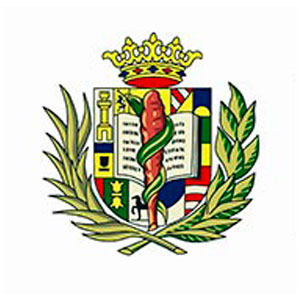Master’s Degree in Psychopedagogy

Official program of growing labor demand
The Master’s Degree is oriented to educate professionals who want to achieve an integral and multidisciplinary education of a psychopedagogical nature.
The program allows achieving specialization aimed at the knowledge of the educational processes of teaching-learning orientation, both in educational and socio-occupational environments.
The pedagogical model of the program is based on research in executive intelligence, which can be taken in the 100% online modality, which breaks the boundaries of education and allows making one’s personal and professional life compatible with the teaching process.
The Master’s Degree in Psychopedagogy is an official degree, in great demand by professionals related to the area of education, aimed at getting the students to acquire a specialized education in the area of orientation and of psychopedagogical intervention.
The curriculum is focused on the capacity to detect, diagnose and intervene psychopedagogically in students or patients, using the most appropriate methodologies and techniques.
The educational plan is structured in three subjects:
- That will allow the student to know the principles and foundations of psychopedagogy, as well as the basic models of psychopedagogical intervention and elemental cognitive processes.
- The Master's Degree in Psychopedagogy involves theoretical and applied specialization oriented towards knowledge of the educational processes of orientation and teaching-learning, both in the educational and socio-occupational environment.
- Currently, the figure of the educational psychologist is not contextualized only in the school environment, as he/she is able to carry out his/her functions in multiple areas such as career guidance for the employment of immigrants, university students, etc., attention to diversity, community intervention, inclusive education, psycho-pedagogical attention to functional minorities, etc.
Student profile:All applicants who meet the requirements established by current legislation will be able to access the Master's Degree in Psychopedagogy, the entry profile being that of a university graduate or equivalent in the academic and disciplinary field of Educational Sciences: Teachers of Primary or Early Childhood, Pedagogy or Psychopedagogy. Also, given the multidisciplinary nature of the program, those students who have completed the Master's Degree in Teacher Training will also be able to access the Master's degree.
Graduate Profile:Graduates of the Master's Degree in Psychopedagogy will have the necessary education to analyze and carry out research related to psychopedagogy, in addition to designing and applying assessment instruments and orientation and intervention programs. They will have skills to effectively tackle psychopedagogical problems at all levels of education and institutions in which they carry out their work.
Official Degree:Master´s Degree in Psychopedagogy
Center responsible:School of Life and Nature Sciences
Openings available: 450
Total Credits:60 credits.
Minimum of 12 ECTS credits and maximum of 60 ECTS credits per enrollment and academic period.
Duration: 1 year. From October to June
Academic year it was introduced: 2019
Branch of knowledge: Social and Legal Sciences
Type of Education: Online
Academic Regulations: General student’s regulations. Credit transfer and recognition. Regulation of student participation. Common procedures for carrying out the Final Research Project
University Services: [+info]
Professional Internships in the best institutions of the sector
Curriculum
All our degrees and curricula have been prepared in accordance with the new guidelines set by current legislation, having already been verified by the National Agency for Quality Assessment.
The student must complete 60 credits
Subjects 48 ECTS
- 4 ECTS | Definition, fields and historical process of Psychopedagogy and orientation
- 4 ECTS | Advice and professional development
- 4 ECTS | Individual and learning differences I: Attention and memory
- 4 ECTS | Individual and learning differences II: Motivation and emotion
- 4 ECTS | Strategies and teaching styles
- 4 ECTS | Child and adult psychopathology
- 4 ECTS | Psychopedagogical evaluation
- 4 ECTS | Psychopedagogical intervention
- 4 ECTS | Conflict and coexistence resolution
- 4 ECTS | Vocational and occupational orientation
- 4 ECTS | Planning and management of work teams in psychopedagogical services
- 4 ECTS | Design of research and data analysis in Psychopedagogy
Internships and Final Research Project 12 ECTS
- 6 ECTS | Internships
- 6 ECTS | Final Research Project
Professors
| Profesores Professors | Porcentaje de Doctores Percentage of PhD holders |
| 33* | 84,84% |
*El número de profesores actual responde al número de plazas cubiertas para el curso académico 2023-2024.
*The current number of professors corresponds to the number of places filled for the 2023-2024 academic year.
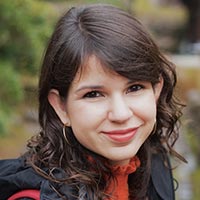 Irene Guevara de Haro
Directora del Máster Universitario en Psicopedagogía
Director of the Master's Degree in Psychopedagogy
Irene Guevara de Haro
Directora del Máster Universitario en Psicopedagogía
Director of the Master's Degree in Psychopedagogy
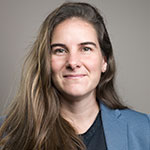 Sara Uceda Gutiérrez
Directora del departamento de Psicología
Director of the Psychology Department
Sara Uceda Gutiérrez
Directora del departamento de Psicología
Director of the Psychology Department
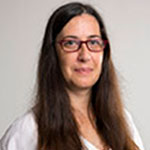 Ana Isabel Beltrán Velasco
Dirección TFM
TFM Director
Ana Isabel Beltrán Velasco
Dirección TFM
TFM Director
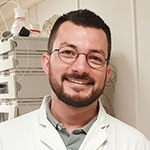 Víctor Echeverry Alzate
Dirección TFM
TFM Director
Víctor Echeverry Alzate
Dirección TFM
TFM Director
 Luis Martínez Guerrero
Dirección TFM
TFM Director
Luis Martínez Guerrero
Dirección TFM
TFM Director
 Camino Ruiz Rodríguez
Coordinadora académica del master
Master's Academic Coordinator
Camino Ruiz Rodríguez
Coordinadora académica del master
Master's Academic Coordinator
 Susana Méndez Gago
Dirección TFM
TFM Director
Susana Méndez Gago
Dirección TFM
TFM Director
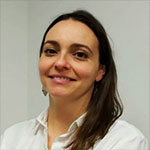 Elisa Rodríguez Ortega
Profesora Historia de la Psicología
History of Psychology Professor
Elisa Rodríguez Ortega
Profesora Historia de la Psicología
History of Psychology Professor
 María Vaillo Rodríguez
Dirección TFM
TFM Director
María Vaillo Rodríguez
Dirección TFM
TFM Director
 Lidia Cabello Gonzáles
Profesora Definición, campos y proceso histórico de la psicopedagogía y la orientación
Professor of Definition, fields and historical process of psychopedagogy and guidance
Lidia Cabello Gonzáles
Profesora Definición, campos y proceso histórico de la psicopedagogía y la orientación
Professor of Definition, fields and historical process of psychopedagogy and guidance
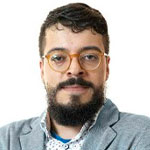 Javier Diz Casal
Profesor de Asesoramiento y desarrollo profesional
Professor of Counseling and Professional Development
Javier Diz Casal
Profesor de Asesoramiento y desarrollo profesional
Professor of Counseling and Professional Development
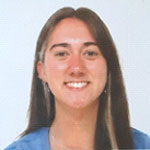 Ángeles Terol Cazorla
Profesora de Diferencias individuales y aprendizaje I: atención y memoria
Professor of Individual Differences and Learning I: Attention and Memory
Ángeles Terol Cazorla
Profesora de Diferencias individuales y aprendizaje I: atención y memoria
Professor of Individual Differences and Learning I: Attention and Memory
 Marta Martín-Palomino Verbo
Profesora de Diferencias individuales y aprendizaje II: motivación y emoción
Professor of Individual Differences and Learning II: motivation and emotion
Marta Martín-Palomino Verbo
Profesora de Diferencias individuales y aprendizaje II: motivación y emoción
Professor of Individual Differences and Learning II: motivation and emotion
 Yojana Pavón Bonilla
Profesora de Orientación vocacional y laboral
Professor of Vocational and work guidance
Yojana Pavón Bonilla
Profesora de Orientación vocacional y laboral
Professor of Vocational and work guidance
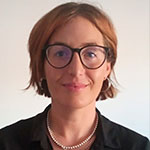 Elena Valero Bellé
Tutora de Prácticas
Internship Tutor
Elena Valero Bellé
Tutora de Prácticas
Internship Tutor
 Ana González López
Tutora de Prácticas
Internship Tutor
Ana González López
Tutora de Prácticas
Internship Tutor
 Benjamín Rodríguez Expósito
Dirección TFM
TFM Director
Benjamín Rodríguez Expósito
Dirección TFM
TFM Director
 Alba Práxedes Pizarro
Dirección TFM
TFM Director
Alba Práxedes Pizarro
Dirección TFM
TFM Director
 Camino Ruiz Rodriguez
Coordinadora
Coordinator
Camino Ruiz Rodriguez
Coordinadora
Coordinator
 Clara Díaz-Cordovés Verbo
Coordinadora de alumnos y profesora
Student coordinator and Professor
Clara Díaz-Cordovés Verbo
Coordinadora de alumnos y profesora
Student coordinator and Professor
 Maitane Elorriaga Rubio
Profesora
Professor
Maitane Elorriaga Rubio
Profesora
Professor
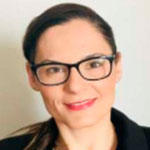 Alicia Alvarado Escudero
Profesora
Professor
Alicia Alvarado Escudero
Profesora
Professor
 María Luisa Cervantes
Profesora
Professor
María Luisa Cervantes
Profesora
Professor
 Emilia Cabras
Profesora
Professor
Emilia Cabras
Profesora
Professor
 Silvia Castellanos
Profesora
Professor
Silvia Castellanos
Profesora
Professor
 Laura Jiménez
Profesora
Professor
Laura Jiménez
Profesora
Professor
 Adela Encarnación Cortijo Cantos
Profesora
Professor
Adela Encarnación Cortijo Cantos
Profesora
Professor
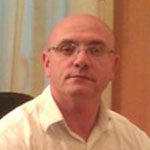 José Alberto Sotelo Martín
Profesor
Professor
José Alberto Sotelo Martín
Profesor
Professor
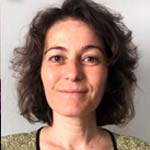 Elizabeth Ransanz Reyes
Profesora
Professor
Elizabeth Ransanz Reyes
Profesora
Professor
 José Manuel Blanco Gómez
Profesor
Professor
José Manuel Blanco Gómez
Profesor
Professor
 Carlos Alberto Marchena Giráldez
Profesor
Professor
Carlos Alberto Marchena Giráldez
Profesor
Professor
 Antonio Herrero Hernández
Profesor
Professor
Antonio Herrero Hernández
Profesor
Professor
More Academic Information
Skills
Basic SkillsIn accordance with Royal Decree 43/2015 and Royal Decree 861/2010, amending Royal Decree 1393/2007, of October 29, which establishes the organization of official university education, as well as the Royal Decree 1027/2011, which establishes the Spanish Qualifications Framework for Higher Education (MECES), Master's degrees must guarantee the acquisition of the following basic competences:
- CB6 Possess and understand knowledge that provides a basis or opportunity to be original in the development and/or application of ideas, often in a research context.
- CB7 Students must know how to apply the acquired knowledge and their problem-solving ability in new or little-known environments within broader (or multidisciplinary) contexts related to their area of study.
- CB8 Students must be able to integrate knowledge and face the complexity of formulating judgments based on information that, being incomplete or limited, includes reflections on the social and ethical responsibilities linked to the application of their knowledge and judgments.
- CB9 Students must know how to communicate their conclusions and the latest knowledge and reasons that support them to specialized and non-specialized audiences in a clear and unambiguous way.
- CB10 Students must possess the learning skills that allow them to continue studying in a way that will be largely self-directed or autonomous.
On the other hand, students will have to achieve the following general competences:
- CG1 Analyze the milestones of Psychopedagogy and counseling and integrate updated information on counseling and psychopedagogical intervention processes.
- CG2 Be able to generate new ideas to reinforce the solution of different psychopedagogical needs.
- CG3 Be able to assess and apply the acquired knowledge about psychopedagogy in a multidisciplinary context.
- CG4 Select the appropriate evaluation techniques and instruments for the psycho-pedagogical diagnosis and interpret its results appropriately.
- CG5 Design and apply psychopedagogical intervention strategies adjusted to the real needs of the target population.
- CG6 Be able to work collaboratively and in multidisciplinary teams in the field of psychopedagogy and counseling.
- CG7 Apply and generalize the knowledge and skills acquired in the area of counseling and psychopedagogical intervention to different contexts and situations.
- CG8 Be able to communicate professional measures and use technical and adjusted language with the different agents involved in the context of counseling and psychopedagogical intervention.
At the end of their studies, students must have acquired the following Specific Competences:
- CE1 Analyze and assess the historical evolution and the processes involved in psychopedagogy and educational orientation.
- CE3 Analyze and develop methodological innovations for psychopedagogical advice.
- CE5 Critically and constructively assess educational policies and their ideological foundations, in national and international contexts, so that they can advise and intervene in their design and execution.
- CE6 Understand cognitive processes, analyze and interpret their fundamental characteristics at each stage of development and their involvement in learning, based on the latest advances in research.
- CE7 Be able to analyze learning styles and emotional and motivational characteristics, and interpret their involvement in the teaching-learning process for the design of effective interventions.
- CE 9 Evaluate cognitive processes as the basis of individual differences and apply it in attention to diversity and special educational needs.
- CE10 Know, understand and apply the biological foundations of human behavior and psychological functions to psychopedagogical intervention.
- CE 11 Be able to distinguish the characteristics of the different psychopathological problems and develop interventions based on them.
- CE12 Distinguish and categorize the different special educational needs of students at different stages of schooling, and plan interventions taking into account the evolutionary development of the child.
- CE13 Assess the psychopedagogical needs of students, groups and organizations based on the application of different methodologies, instruments and evaluation techniques and issue reports based on said assessments.
- CE15 Be able to develop an effective intervention from a psychopedagogical approach, including the management of motivational and social aspects.
- CE16 Analyze and create educational inclusion programs within the center and in the child's social sphere, thus promoting their integration.
- CE18 Plan and develop an intervention plan in the field of educational guidance and psycho-pedagogical advice.
- CE19 Generate prevention, negotiation and mediation programs for conflict management and improvement of coexistence.
- CE21 Manage and encourage teams with the aim of giving an adequate response to the psycho-pedagogical needs of students, groups and organizations.
- CE22 Distinguish the fields and contexts of innovation and psychopedagogical research.
- CE23 Evaluate the different tools for research and be able to design and carry out research to improve psychopedagogical intervention.
- CE24 Integrate the theoretical-practical knowledge acquired in the Master's degree to the actual practice of the centers, for their best professional technical qualification.
- CE26 Incorporate the knowledge acquired in the Master's degree in carrying out a project of initiation to research or the design of an innovative psychopedagogical intervention.
Online Studies
The master's degree is studied remotely (online) through various educational actions, among which we can highlight videoconference teaching sessions, which focus on the presentation of content and individual and group work, through different activities led by the professor. These sessions are available on the platform so that the student can access them in their studies. More information: Digital pedagogy: Methodology
The teaching system will be carried out entirely through the Virtual Campus, which is accessible through the Internet and the Blackboard computer platform currently in use at the University.
At the beginning of the academic year, the student is given, by email and as downloadable material from the website, the general documentation of the Master's degree.
Along with this general documentation and also electronically, the student will be provided with a didactic guide for each subject, which includes:
- Detailed program of the subject and the competences that the student will obtain upon completion.
- Detail of the set of educational activities, work to be submitted, evaluation criteria in ordinary and extraordinary calls, bibliography and recommended links.
- Evaluation systems.
- Location and detailed mechanisms of remote tutoring with the professor.
- Exam dates and work submission dates.
- Any other information and guidance necessary for the monitoring of the subject.
This material will be accessible at all times through the Virtual Campus, whose main page contains all the subjects in which the student is enrolled, organized by semesters.
Schedules
General Calendar
Academic calendar Intake24 calendarBasic agenda
Basic agendaGroups Calendars
Admission Criteria
Access Requirement
As established in article 16 of RD 1393/2007, modified by RD 861/2010, students who meet any of the following conditions may access the Master's degree:
- Have an official Spanish university degree or another issued by an institution of higher education of the European Higher Education Area that grants access to Master's degrees in the country issuing the degree.
- Graduates of educational systems outside the European Higher Education Area will be able to access without the need for homologation of their degrees, after verification by the University that they accredit a level of education equivalent to the corresponding official Spanish university degrees, and that they grant access to postgraduate studies in the country issuing the degrees. Access by this means will not imply, in any case, the homologation of the interested party's previous degree, nor its recognition for other purposes than that of studying the Master's degree. In the cases in which the homologation of any degree, diploma or studies obtained abroad for access to the University is required, the Antonio de Nebrija University may conditionally admit students who prove that they have submitted the corresponding application for approval while the homologation procedure is resolved. Within the Academic Ordinance Plan that the University has implemented, the “Conditional Enrollment Procedure” includes these cases.
- In the case of students with Special Educational Needs (SEN), the need for possible curricular adaptations, itineraries or alternative studies will be evaluated.
Admission Criteria
In general, the admission documentation will be submitted to the Admissions Department. The student must provide the originals or certified copies of the documentation submitted within the period established by the University in order to formalize their enrollment. Any inaccuracy, falsity or omission of the data, statement or document provided by the student in the period of admission, will determine the impossibility of continuing to exercise the right from the moment the University has proof of these events, proceeding to the cancellation of the application for admission submitted and the place awarded, without prejudice to any criminal, civil or administrative responsibilities that may arise.
In order to access the official master's degrees, it is necessary to submit the following documentation:
- Completed Admission Application.
- Identification document or valid passport.
- 2 passport-size photographs.
- In case it is necessary, a letter issued by the University in which states the student has completed the level that grants access to the Master's studies in the country issuing the degree.
- Academic Record with the grades that grant access to the Master's degree.
- Official Spanish university degree.
- Official degree issued by a foreign higher education institution belonging to the European Higher Education Area (EHEA) that grants access official master's degrees in the issuing country.
- Official degree issued in a foreign educational system not belonging to the EHEA. In this case, access will be conditional upon verifying that the studies completed correspond to a level of education equivalent to that of the official Spanish university degrees and that they grant access to official master's degrees in the country in which the degree was issued. This procedure does not imply, in any case, the homologation of the previous degree, nor its recognition for any other purpose than to access the master's studies.
- Personalized letter of intent addressed to the Directors of the Master's Program in Educational Processes of Teaching and Learning, in which they explain the reasons why they want to take the Master's degree, as well as the academic and professional expectations that lead them to this choice.
- Updated Curriculum Vitae.
In the event that the studies with that grant access to the Master's pre-registration are completed in an institution of Foreign Higher Education, both the diploma and the academic record (grades) must be official and issued by the competent authorities, in accordance with the legal system of the country of origin. In addition, they will have to meet the requirements indicated in detail in the "Master_PO12 access and admission procedure" of the Teaching Plan that the University has implemented.
If the number of applicants exceeds the number of places offered, the student's academic record will be taken as admission criteria (average grade).
Therefore, anyone interested in accessing the Master's degree in Educational Processes of Teaching and Learning must submit, without exception, their academic record, since it will be the average grade that decides their admission to the Master's program, in the event that the number of applications exceeds the number of places offered.
Once the places are full, in the case of having more people interested in accessing, they will be on the waiting list in case of any possible vacancies that may arise before the start of the academic year, and will have the same admission and selection criteria detailed in point 4 as the rest of applicants.
Admission Process: Personal Interview
In addition to the evaluation of the academic merits provided by the candidate, students must have a personal interview as part of the admission process. This interview, carried out by the academic management or coordination of the Master's Degree in Educational Psychology from the Antonio de Nebrija University, or by a professor in the school, is aimed at verifying the suitability of the candidate and his/her profile in relation to the degree. It is a matter of determining if the candidate has sufficient motivation, training and knowledge, abilities, aptitudes, communication skills, extracurricular activities and future interests necessary to be admitted as a student in the postgraduate degrees of Nebrija University.
Enrollment Process
Once the student has been admitted to the Master's Degree in Educational Psychology from the Antonio de Nebrija University, he will proceed to enrollment, following these phases:
- Annual registration fees: Candidates must reserve a place. This economic pre-registration guarantees the candidate's place at the University. These annual registration fees will not be returned except for students who are conditionally admitted, or do not fulfill the legal access requirements.
- Enrollment: Pre-enrolled candidates who wish to formalize their academic enrollment at the University must, within the indicated deadlines, follow these steps:
- 1. Submit documentation: prove that you meet the requirements established by Spanish university legislation for admission to the Master's degree.
- 2. Formalize the enrollment process via the Internet: The self-enrollment service on the Nebrija website allows admitted students to complete all academic, financial and administrative procedures within the established deadlines. To do this, they will receive, along with their letter of admission, the access code and personal password necessary to carry out their self-enrollment. Once self-enrollment is formalized, the candidate acquires the status of student at Nebrija University.
- 3. Pay the enrollment in the academic year, according to the modality chosen by the student.
Deadlines for enrollment
- Enrollment will take place annually; the opening date will vary depending on the beginning of the Program. However, enrollment must be carried out at least one week before the beginning of the academic period.
- An extraordinary period will open exceptionally for students who want to start their studies in the second semester, enrollment must be carried out before taking the second semester exams.
Employability
Career Opportunities
The Master’s Degree in Psychopedagogy prepares one for:
More information about InternshipsActivities in Psychopedagogy
Visit all the Activities of the School of Life and Nature Sciences
Elearnia and Global Campus Nebrija
National meeting on technology and e-Learning, organized by Global Campus Nebrija in collaboration with E-Learning Media, to debate, consider and comment on different issues in the use of technology in the teaching-learning processes in digital environments.





